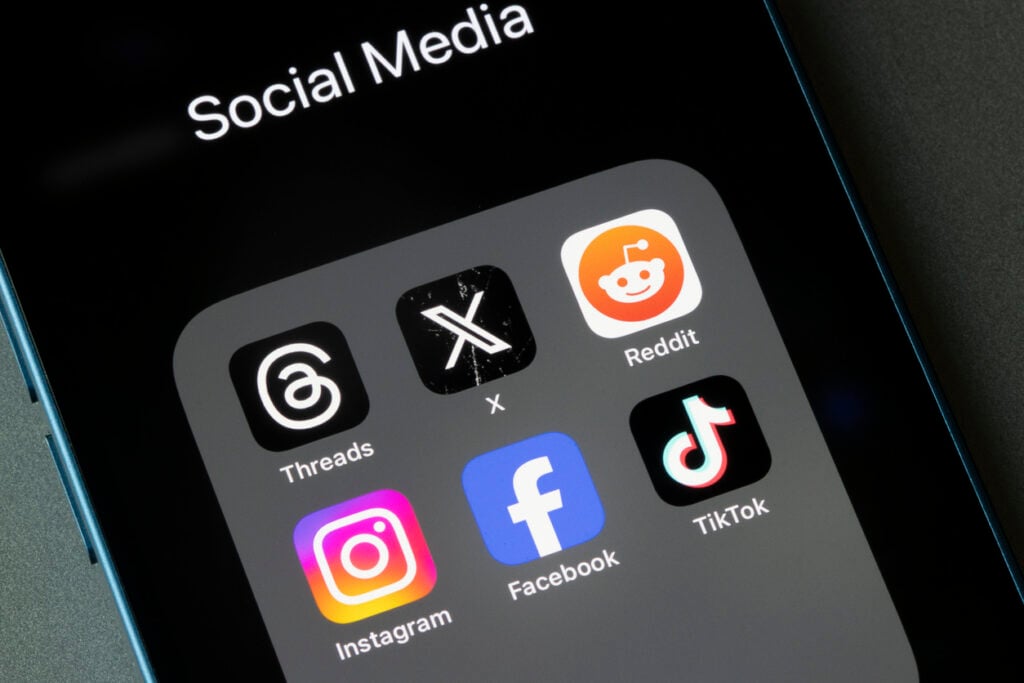Older generations mock gen z’s anxiety, but they ignore what’s causing it.

Anxiety isn’t just some personal flaw—it’s a direct response to a world that feels increasingly unstable. Yet, instead of recognizing this, older generations dismiss Gen Z’s struggles as overdramatic, self-inflicted, or the result of too much time on their phones. They act like young people are simply weaker, claiming that past generations had it just as hard but didn’t complain as much.
But Gen Z isn’t making this up. They’ve grown up in an economy where financial security is slipping away, a climate crisis that keeps getting worse, and a digital world that never turns off. They’re not anxious because they lack resilience—they’re anxious because they’re paying attention.
The real question isn’t why Gen Z is struggling; it’s why older generations refuse to acknowledge what’s making life so overwhelming. Here’s what they keep getting wrong about the modern anxiety epidemic.
1. The cost of living is out of control, but wages haven’t kept up.

Telling young people to “just work harder” is useless when full-time jobs no longer guarantee financial stability. Housing prices have skyrocketed, student debt is crushing, and basic necessities like healthcare and food cost more than ever. Meanwhile, wages have barely moved, making financial independence feel impossible for many, according to Emily Fowler of Yahoo Finance.
Previous generations could afford a house on a single income, but for Gen Z, even affording rent feels like a luxury. Anxiety isn’t just about emotions—it’s a survival instinct kicking in when basic needs aren’t secure. If financial stress is a constant reality, how can anyone expect young people to feel at ease?
2. Job security is disappearing, and hustle culture is exhausting.

The idea of working at one company for decades with steady raises and retirement benefits is gone. Today’s job market is unstable, with layoffs, gig work, and burnout replacing long-term careers. Young people aren’t just working harder—they’re working more, juggling side hustles and contract jobs just to stay afloat, as reported by Beth Greenfield of Fortune.
Older generations call this laziness or entitlement, but it’s the opposite. The pressure to constantly perform, stay competitive, and prove your worth in an unforgiving job market is mentally exhausting. Anxiety isn’t a sign of weakness—it’s a natural response to a system that never lets people feel secure.
3. Social media isn’t the cause—it just amplifies reality.

It’s easy to blame social media for rising anxiety, but the truth is more complicated. Platforms like TikTok and Twitter don’t create problems; they expose them. Economic struggles, climate disasters, political instability—Gen Z isn’t imagining these issues, they’re just more aware of them.
Older generations grew up in a world where bad news traveled slowly. Now, young people are bombarded with it 24/7. Instead of blaming technology, maybe the real issue is the world social media is reflecting back at them. If life felt more stable, constant exposure wouldn’t be so overwhelming, as reported by Erica Pandey of Axios.
4. Mental health care is expensive and inaccessible.

Telling people to “just go to therapy” ignores a major issue: mental health care is often unaffordable. Therapy sessions can cost hundreds of dollars, and even with insurance, copays and waitlists make getting help difficult. Meanwhile, older generations criticize Gen Z for talking about mental health more, as if acknowledging a problem is the same as creating it.
Anxiety doesn’t go away just because someone wants to feel better. Without access to care, people are left to struggle alone, turning to online communities for support. Maybe instead of mocking young people for being open about their struggles, more effort should go into making help available.
5. The planet is in crisis, and young people have to live with it.

Previous generations could afford to ignore climate change—Gen Z can’t. They’ve grown up watching wildfires, hurricanes, and heatwaves worsen year after year, with little meaningful action from those in power. It’s not irrational to be anxious about a future where basic resources may become scarce.
Dismissing these fears as overblown ignores the reality that young people will bear the brunt of environmental damage. If older generations had to plan their lives around an uncertain climate, they might understand why this generation feels so uneasy about the future.
6. School shootings and public safety fears have shaped their reality.

Going to school shouldn’t feel like a risk, but for Gen Z, mass shootings are a constant concern. They’ve grown up practicing active shooter drills and watching headlines about the latest tragedy. Public spaces don’t always feel safe, and the idea that danger could strike anywhere is a stress most older generations never had to deal with.
Telling young people they’re “too anxious” ignores how much uncertainty they live with. If you were raised in an environment where routine activities carried an underlying sense of danger, you’d probably feel more on edge too.
7. Success now requires way more than just hard work.

Older generations insist that young people just need to work harder, but the reality is that hard work alone doesn’t guarantee stability anymore. Degrees don’t guarantee good jobs, salaries don’t guarantee homeownership, and even saving money feels pointless when inflation keeps driving up costs.
Success isn’t just about effort—it’s about opportunity, and those opportunities are shrinking. If financial independence were as straightforward as older generations claim, anxiety wouldn’t be so widespread. The system has changed, and refusing to acknowledge that doesn’t make it any less true.
8. Constant comparison is unavoidable in a hyperconnected world.

Comparing yourself to others isn’t new, but social media has turned it into a daily experience. Seeing influencers and peers seemingly “succeeding” while you struggle fuels feelings of inadequacy. Older generations didn’t grow up with their peers’ highlights broadcasted 24/7, making it easier to focus on their own path.
This isn’t just about material success—it’s about feeling like you’re constantly falling behind. The pressure to keep up, to be more productive, to always be improving—it’s exhausting. Without space to disconnect, it’s no wonder young people feel overwhelmed.
9. Therapy and self-care aren’t signs of weakness.

Talking about mental health isn’t making people weaker—it’s making them more aware. Previous generations buried their struggles, often turning to alcohol, repression, or sheer avoidance. Just because people didn’t talk about anxiety in the past doesn’t mean it didn’t exist.
Gen Z is breaking cycles by acknowledging their mental health instead of ignoring it. If anything, that’s a sign of strength, not weakness. Mocking young people for prioritizing self-care just proves how much older generations have misunderstood their own struggles.
10. Digital burnout is real, and there’s no escape.

Being online isn’t just a choice—it’s a requirement for work, school, and staying connected. The line between personal life and obligations has blurred, making it harder to truly unplug. Unlike older generations, who could separate work from home, Gen Z is constantly reachable, expected to respond instantly, and flooded with information.
This nonstop exposure isn’t just inconvenient—it’s mentally exhausting. Without clear boundaries, relaxation feels impossible. If burnout is a widespread problem, maybe the issue isn’t that young people are weak, but that modern life demands too much from them.
11. Mocking anxiety doesn’t make it disappear.

Telling young people to “just get over it” doesn’t solve anything. Anxiety isn’t a trend—it’s a real response to a stressful world. Dismissing it only isolates people further, making them feel like their struggles aren’t valid.
Instead of blaming Gen Z for being anxious, maybe it’s time to ask why anxiety has become so common. If older generations were willing to have that conversation, they might realize that the problem isn’t weakness—it’s the world young people are trying to survive in.
